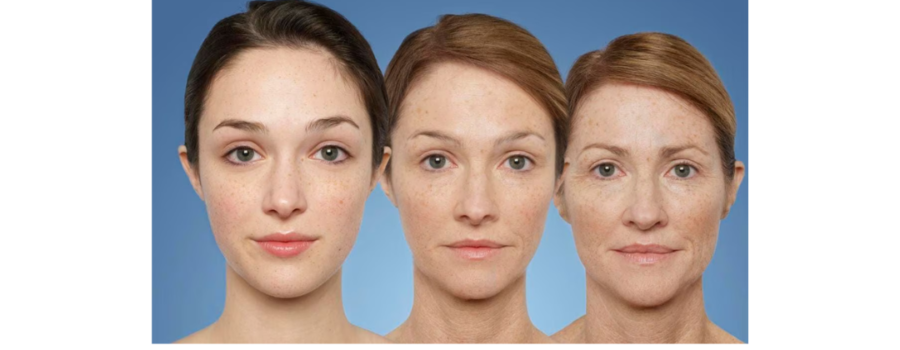In March, First Lady Jill Biden announced a new White House women’s health initiative, raising an intriguing research question: What if we could delay menopause and its associated health risks?
This question comes from emerging research in longevity and women’s health. Scientists have discovered that the female reproductive system, particularly the ovaries, is crucial to a woman’s overall health. Ovaries are linked to nearly every aspect of a woman’s health, but they cease their primary function in midlife, leading to menopause. This transition accelerates aging and the decline of other organ systems, like the heart and brain. While women generally live longer than men, they often spend more time with diseases or disabilities.
The ovaries are “the only organ in humans that we just accept will fail one day,” said Renee Wegrzyn, director of the Advanced Research Projects Agency for Health. “It’s actually kind of wild that we all just accept that.”
The shorter lifespan of the ovaries makes them an ideal focus for research. Scientists believe that extending their function to better match the longevity of other organs could significantly impact women’s health and longevity research.
Dr. Wegrzyn hopes the White House initiative, which invites researchers and startups to compete for a share of the program’s $100 million budget, will emphasize the link between menopause and longevity while attracting more funding and talent to the field.
“If you don’t think about ovarian function during aging,” said Jennifer Garrison, an assistant professor at the Buck Institute for Research on Aging, “then you’re kind of missing the boat.”
How the Ovaries Are Involved in Aging
The ovaries function like the control center of “a complex network of signaling in a woman’s body,” Dr. Garrison said. They communicate with and influence nearly every organ through hormones like estrogen and progesterone, as well as other chemicals. While scientists don’t fully understand how this communication works, they do know that when the ovaries stop functioning normally, various health issues can arise. For example, in young women, this can lead to polycystic ovary syndrome (PCOS), which increases the risk of metabolic conditions, heart disease, and mental health problems.
As a woman’s eggs are depleted, leading to menopause, the ovaries’ chemical communications decrease significantly. This corresponds with an increased risk of dementia, cardiovascular disease, osteoporosis, and other age-related diseases. Women who enter menopause early have a higher risk of developing these conditions and may have a shorter lifespan. Women who undergo surgical removal of their ovaries face even greater risks for chronic conditions. That suggests that even after the ovaries stop releasing eggs in menopause, they may still be somewhat protective to a woman’s overall health, said Dr. Stephanie Faubion, the medical director of the Menopause Society. It’s just unclear how.
As of now, these connections are correlational. “Scientists don’t know if the ovaries themselves are the drivers of health in aging, or if there is something else that accelerates aging that then leads to ovarian dysfunction”, Dr. Faubion said. Research indicates that various factors like smoking, body mass index, and life stressors contribute to early menopause onset. Additionally, Black and Hispanic women typically experience menopause earlier than white women, with genetics potentially playing a role.
“Is the ovary just a marker of overall health? Or is it that the ovary is timing out and causing poor health?” Dr. Faubion said. “I mean, it’s chicken-egg.”
How Delaying Menopause Could Extend Life Span
Researchers are exploring how delaying menopause might contribute to longer life spans. Studies, primarily conducted in animals such as mice, indicate that extending ovarian function can potentially enhance health and increase longevity. For instance, transplanting ovaries from younger animals into older ones has shown to prolong the older animals’ lifespan in some experiments.
Currently, scientists are investigating various methods to delay menopause in humans. One approach being explored involves using a pharmaceutical form of anti-Müllerian hormone (AMH), which regulates the maturation of follicles during menstrual cycles. Companies like Oviva Therapeutics are in early stages of testing this approach, primarily in animal models like mice and cats, to assess its potential to preserve ovarian function and reduce the loss of eggs over time. Typically, women lose dozens of eggs per menstrual cycle, even though only one typically matures and is ovulated.
Think of AMH as “a porous cloth that you cover around the ovary,” said Daisy Robinton, co-founder and chief executive of Oviva, who is competing for some of the funding from the White House initiative. The AMH level determines the size of these pores: low AMH results in larger pores, allowing more eggs to be released each cycle, while high AMH means smaller pores and fewer eggs released. “The idea is that if a woman loses fewer eggs, she can hold on to her ovarian reserves and the ovaries’ functionality for longer”, Dr. Robinton said.
Researchers at Columbia University are conducting a clinical trial aimed at slowing the rate of egg loss in women. The study involves testing an immunosuppressive drug called rapamycin, typically used to prevent organ transplant rejection and favored by longevity enthusiasts. Women aged 35 to 45 are participating to understand how rapamycin affects their ovarian reserve, influencing monthly egg maturation. Previous studies in mice have shown that rapamycin can prolong ovarian function.
While the trial is ongoing and participants are unaware if they received rapamycin or a placebo, initial findings suggest two patterns: some women exhibit a normal decline in ovarian reserve, measured by ultrasounds and AMH levels, while others show potential alterations. Dr. S. Zev Williams, leading the trial as an associate professor of women’s health at Columbia, notes promising results. He is also seeking additional funding for the study.
Importantly, researchers clarify that the aim isn’t to indefinitely prolong menstruation or enable pregnancy at advanced ages like 70, though the treatments could potentially extend fertility.
The accelerated decline of the ovaries during midlife also makes them “a good model for being able to study aging and being able to do so within a limited period of time,” Dr. Williams said. While other anti-aging researchers are experimenting with drugs like rapamycin, it’s challenging to determine if these drugs extend human life without conducting decades-long studies. With the ovaries, researchers can observe effects much more quickly.
What’s more, “if we can understand why ovaries age prematurely and what’s driving that, that will almost certainly tell us something important about aging in the rest of the body,” Dr. Garrison said. “And then that, of course, becomes important not just for females, but also for males.”







